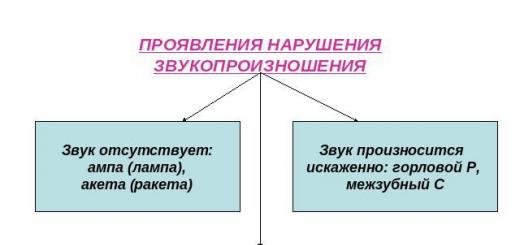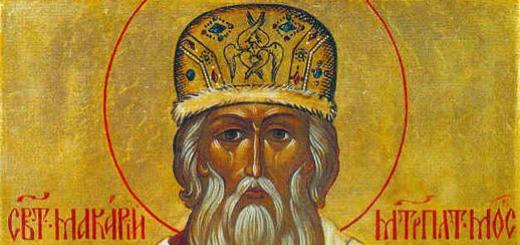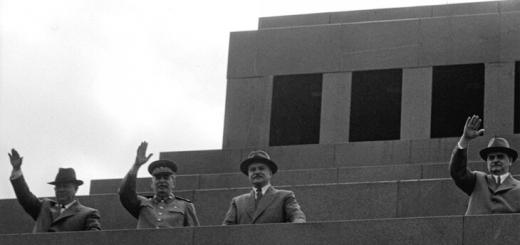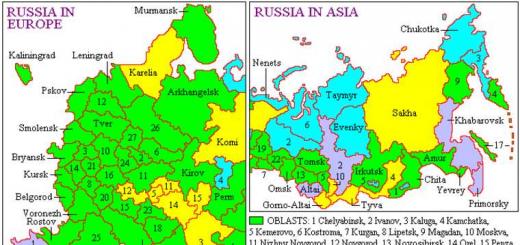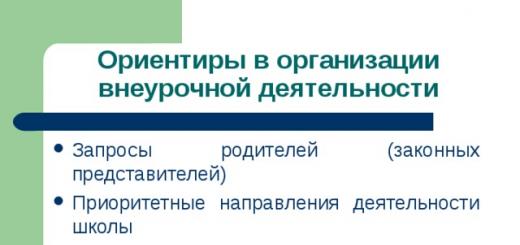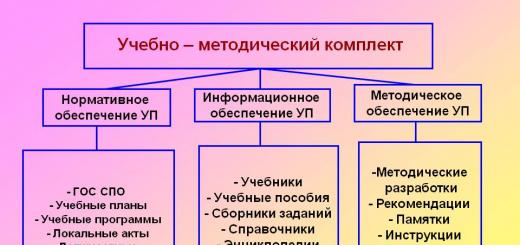“Analysis of the poem” - Immanent analysis of I. Bunin’s poem “The day will come - I will disappear...”. What role does the syntactic organization of the text play in revealing the author's intention? etc. The poem was written using... rhyming... I. Bunin. Ivan Bunin’s work “The day will come - I will disappear...” belongs to philosophical lyrics.
“Poems of Gumilyov” - CARACALLA (186-217) Roman emperor from 211, from the Severan dynasty. Conclusions of the study. Lesson topic: “Secrets of N. Gumilyov’s poetry.” Poem "The Navigator Pausanias". Prepare a written story on the topic: “My Gumilev.” The purpose of the lesson: to determine the features of N. Gumilyov’s poetic creativity.
“Fet’s Poem” - L. N. Tolstoy (From a letter to V. P. Botkin. July 9, 1857). Night. And dawn, dawn!.. 2nd stanza. L. Ozerov. The rays lay... It is not by chance that a night landscape appears in A. Fet’s poem. Let's draw conclusions. REPEATS Syntactic parallelism ANAPHOR EPIPHOR. Why do you think the poem “goes silent”?
“Analysis of Pushkin’s poem Monument” - A.S. Pushkin’s poem “Monument”. G.R. Derzhavin. The classical concept of linguistic-stylistic analysis of poetic text by L.V. Shcherba, V.V. Vinogradov. Alexandrian. SHCHERBA Lev Vladimirovich. Development of a literature lesson in 9th grade on the topic “Linguostylistic analysis of poetic text.
“Collection of poems” - Compilation. Criteria for evaluation. Collection design options. Collect all the material Make comments Arrange the poems in the desired sequence. The discussion of the results. A selection of poems. Collection design. A colorful collection of poems “Seasons in the works of A.S. Pushkin."
“Poems” - The golden grove dissuaded... Rejoicing, raging and suffering, life is good... The feather grass sleeps - no other homeland... Find comparisons and metaphors in the poem. Gold, blue, lilac, red, yellow. Epithets and coloring of verse. The old maple head looks like me. The blizzard will sing and ring for a long time... (1918) I left my home...
English: Wikipedia is making the site more secure. You are using an old web browser that will not be able to connect to Wikipedia in the future. Please update your device or contact your IT administrator.
中文: 维基百科正在使网站更加安全。您正在使用旧的浏览器,请更新IT )。
Spanish: Wikipedia está haciendo el sitio más seguro. Usted está utilizando un navegador web viejo que no será capaz de conectarse a Wikipedia en el futuro. Actualice su dispositivo o contacte a su administrador informático. Más abajo hay una actualización más larga y más técnica en inglés.
ﺎﻠﻋﺮﺒﻳﺓ: ويكيبيديا تسعى لتأمين الموقع أكثر من ذي قبل. أنت تستخدم متصفح وب قديم لن يتمكن من الاتصال بموقع ويكيبيديا في المستقبل. يرجى تحديث جهازك أو الاتصال بغداري تقنية المعلومات الخاص بك. يوجد تحديث فني أطول ومغرق في التقنية باللغة الإنجليزية تاليا.
Français: Wikipédia va bientôt augmenter la securité de son site. Vous utilisez actuellement un navigateur web ancien, qui ne pourra plus se connecter à Wikipédia lorsque ce sera fait. Merci de mettre à jour votre appareil ou de contacter votre administrateur informatique à cette fin. Des informations supplémentaires plus techniques et en anglais sont disponibles ci-dessous.
日本語: ? ??? IT 情報は以下に英語で提供しています。
German: Wikipedia erhöht die Sicherheit der Webseite. Du benutzt einen alten Webbrowser, der in Zukunft nicht mehr auf Wikipedia zugreifen können wird. Bitte aktualisiere dein Gerät oder sprich deinen IT-Administrator an. Ausführlichere (und technisch detailliertere) Hinweise findest Du unten in englischer Sprache.
Italiano: Wikipedia sta rendendo il sito più sicuro. Stay usando un browser web che non sarà in grado di connettersi a Wikipedia in futuro. Per favore, aggiorna il tuo dispositivo o contatta il tuo amministratore informatico. Più in basso è disponibile un aggiornamento più dettagliato e tecnico in inglese.
Magyar: Biztonságosabb lesz a Wikipédia. A böngésző, amit használsz, nem lesz képes kapcsolódni a jövőben. Használj modernebb szoftvert vagy jelezd a problémát a rendszergazdádnak. Alább olvashatod a részletesebb magyarázatot (angolul).
Svenska: Wikipedia gör sidan mer säker. Du använder en äldre webbläsare som inte kommer att kunna läsa Wikipedia i framtiden. Uppdatera din enhet eller kontakta din IT-administratör. Det finns en längre och mer teknisk förklaring på engelska längre ned.
हिन्दी: विकिपीडिया साइट को और अधिक सुरक्षित बना रहा है। आप एक पुराने वेब ब्राउज़र का उपयोग कर रहे हैं जो भविष्य में विकिपीडिया से कनेक्ट नहीं हो पाएगा। कृपया अपना डिवाइस अपडेट करें या अपने आईटी व्यवस्थापक से संपर्क करें। नीचे अंग्रेजी में एक लंबा और अधिक तकनीकी अद्यतन है।
We are removing support for insecure TLS protocol versions, specifically TLSv1.0 and TLSv1.1, which your browser software relies on to connect to our sites. This is usually caused by outdated browsers, or older Android smartphones. Or it could be interference from corporate or personal "Web Security" software, which actually downgrades connection security.
You must upgrade your web browser or otherwise fix this issue to access our sites. This message will remain until Jan 1, 2020. After that date, your browser will not be able to establish a connection to our servers.
they could hardly persuade me to read Tyutchev. But when I read it, I was simply dumbfounded by the magnitude of his creative talent” (L.N. Tolstoy in the memoirs of his contemporaries. M., 1960. T. 1, p. 484).
The appearance of ninety-two poems by Tyutchev in the appendix to the third book of Sovremennik for 1854 caused a number of responses in the press. Tyutchev’s work was assessed very critically by a reviewer of “Pantheon”, who wrote that among the poet’s poems published in “Sovremennik” there are “two dozen good, two dozen mediocre, the rest are very bad” (Pantheon, 1854, vol. XIV, book 3, dep. IV, p. 17). According to the assumption of K.V. Pigarev, the appearance of this “unfavorable review” may have prompted Turgenev to come up with an article (see: Pigarev K. Life and creativity of Tyutchev. M., 1962, p. 140). The next book of “Pantheon” gave a negative review of Turgenev’s article, which, according to the anonymous reviewer, “contains a lot of strange, erroneous and sophisticated things.” Dissatisfied with the fact that Turgenev rated Tyutchev too “highly,” the reviewer argued that “criticism was not successful for I.S.T., and he in vain left for her the type of works in which he is so great” (Pantheon, 1854, vol. XIV , book 4, section V, p. 31).
Tyutchev and German culture
With such a universal provision, everyone knows that the bills could not pass. So they are. could they establish a principle contrary to their own intention? Moreover, if they intended to lay down the principle that wherever Congress controls, the people should do what they think fit for slavery, why did they not allow the people of the District of Columbia, in their enactment, to abolish slavery within those limits? If they had then laid down the principle of allowing people to do what they liked with slavery, why didn't they apply that principle to those people?
Page 524. That’s why we couldn’t ~ Pushkin’s greetings and approval bequeathed to us- F. I. Tyutcheva.- In the appendix to the March book of Sovremennik for 1854, 92 poems by Tyutchev were published. For the first time, Tyutchev's poetry received recognition back in 1836, when copies of his poems, through the mediation of P. A. Vyazemsky and V. A. Zhukovsky, were transferred to Pushkin. “Witnesses of the amazement and delight with which Pushkin greeted the unexpected appearance of these poems, filled with depth of thought, brightness of colors, news and power of language, are still alive,” recalled P. A. Pletnev (Teacher of the Second Branch of the Imperial Academy of Sciences. St. Petersburg, 1859. Book V, pp. LVII). Yu. F. Samarin also wrote about this: “Eyewitnesses told me how delighted Pushkin was when he saw the handwritten collection of his poems for the first time. He rushed around with them for a whole week...” (Links, M.; L., 1933. Book 2, p. 259). In Sovremennik (1836, vols. III and IV) 24 poems by Tyutchev were published under the general title: “Poems sent from Germany,” with the signature “F. T." After Pushkin’s death and until 1840, Tyutchev’s poems continued to be published in Sovremennik, and “with a few exceptions, these were poems selected, apparently, by Pushkin himself” (see article by K. V. Pigarev in the book. : Tyutchev F.I. Poems. Letters. M., 1957, p. 7).
All the people are living witnesses that this was their only opinion. When we make new acquaintances, we, as before, will try to control them in some way. Now, in turn, let me ask a few questions. If the Missouri Compromise was overturned on any or all of these issues, why didn't the team listen sooner?
This argument seems wonderful to me. It is as if one could say that whites and blacks are no different from each other. He admits, however, that there is a literal change in the bill; and that he made the changes in deference to other senators who would not support the bill.
...to the captivating, although somewhat monotonous, grace of Fet...- Fet became close to a number of St. Petersburg writers, especially Turgenev, in 1853. From then on, for many years, Fet’s poems, before they appeared in print, were submitted to the court of Turgenev, who was the first literary adviser and leader of the poet. Since 1854, Fet's poems began to systematically appear in Sovremennik, and in 1855, with the participation of Turgenev and other employees of this magazine,
This proves that these other senators thought the change essential; and that the judge thought that their opinion should be set aside. Disagreement arose between the advocates and the opponents of slavery regarding its establishment in the country which we purchased from France. The South, and then the best part of the purchase, was already in the state of slaves. The disputes were settled by granting Missouri as a slave state; but with an agreement that throughout the remainder of the purchase, north of a certain line, there should never be slavery.
As to what was to be done with the remainder south of the line, nothing was said; but perhaps the just consequence was that it should come into slavery if it so desired. The southern part, with the exception of the portion above mentioned, subsequently entered into slavery as the State of Arkansas. Finally, settlements began in it. Over time, Iowa became a free state, and Minnesota was granted a territorial government, without removing restrictions on slavery.
A collection of Fet's poems was prepared for publication, published in 1856. 2
During these years, Turgenev highly valued Fet's poetry. In the article “Notes of a rifle hunter of the Orenburg province. S. A-va" the name of Fet was named by him next to the name of Tyutchev (present, volume, p. 521). Lines from Fet’s poems were also quoted by Turgenev in works of art (“Hamlet of the Shchigrovsky district”, 1849; “Correspondence”, 1854).
Finally, the only remaining portion, north of the line, Kansas and Nebraska, was to be organized; and it is proposed and carried to cross out the old dividing line of thirty-four years, and to open this whole country to the introduction of slavery. Now this, in my opinion, is clearly unfair. After an angry and dangerous argument, the parties became friends, sharing the bones of contention. One party first appropriates his share, without any power that should be violated in the possession of it; and then seizes the other party's share.
It was as if two starving people shared their only bread; he hurriedly swallowed his half, and then grabbed the other half in the same way as he put it to his mouth! It is argued that slavery will not go to Kansas and Nebraska anyway. This is a palliation - a lullaby.
...energetic ~ passion of Nekrasov...- Nekrasov’s poems at the end of the 1840s and throughout the 1850s aroused Turgenev’s interest not only for their inherent purely poetic merits, but also due to their clearly expressed social orientation. This is confirmed by Turgenev’s letters to Nekrasov himself. “Your poems to *** are simply Pushkin-like good - I immediately memorized them,” Turgenev writes to the author on July 10 (22), 1855 about the poem “Long Rejected by You.” Comparisons of Nekrasov's poems with Pushkin's (the highest praise from Turgenev) are also found in his other letters. Thus, on November 18 and 23 (November 30 and December 6), 1852, analyzing the original text of Nekrasov’s poem “Muse,” Turgenev wrote to the author (and I. I. Panaev): “... the first 12 verses are different and resemble Pushkin’s texture " When a collection of the poet’s poems was published, Turgenev, in a letter to E. Ya. Kolbasin dated December 14 (26), 1856, again emphasized the social significance of his work: “And Nekrasov’s poems, collected in one focus, are burned” 3.
I have some hope that this will not happen; but let's not be too confident. Therefore, it is not a climate that will leave slavery in these territories. Is there anything special about the country? Missouri adjoins these territories along its entire western border, and slavery is already found in each of its western counties. Slavery rested entirely on the old western frontier of the state, and when, very recently, a portion of that frontier, in the northwest, was moved a little farther west, slavery followed an entirely new line.
Now that the restriction has been removed, what should prevent it from moving forward? There will be no peculiarity of the country - there will be nothing in nature. Will this nation be prevented? The coming scenes are all in favor of expansion. The Yankees who are against him may be more numerous; but in military phrase the battlefield is too far from their base of operations. But it is said that there is no law now in Nebraska concerning the subject of slavery; and that in this case, having taken a slave there, his freedom operates. This is good book law; but is not a rule of actual practice.
...to the correct, sometimes cold painting of Maykov...- The poetry of A. N. Maikov, whose first collection of poems was published in St. Petersburg in 1842, apparently left Turgenev rather indifferent. Neither quotations from Maykov’s poems nor reviews of his work can be found in Turgenev’s letters of the 1850s. The opinion about Maikov’s poetry expressed in Turgenev’s article is close to what V. G. Belinsky wrote about him (see: Belinsky, vol. 10, p. 83).
Wherever slavery existed, it was first introduced without law. The oldest laws we find concerning it are not laws introducing it; but regulating it as if it already existed. Now the white man takes his slave to Nebraska; who will inform the Negro that he is free? Who will take him before the court to check the question of his freedom? Unaware of his legal emancipation, he continues to chop, split and plow. Others bring and move in the same track. Finally, if the time ever comes for a vote, on the question of slavery the institution already exists in the country and cannot be removed.
Page 525. ...they all seem to be written ~ Goethe wanted...- Turgenev has in mind the following thought of Goethe, given in the book of I.-P. Eckermann “Conversations with Goethe in the last years of his life” (recorded on September 18, 1823): “All my poems are “poems about” (on occasion), they are inspired by reality, they have soil and foundation in it.”
2 Nikolsky Yu. Materials on Fet. 1. Corrections by Turgenev of Fetov’s “Poems”, 1850 (Russian Thought, Sofia, 1921, August-September, pp. 211 - 227, October - December, pp. 245 - 263); Blagoy D. From the past of Russian literature. Turgenev - editor of Fet (Print and Revolution, 1923, book 3, pp. 45 - 64); Bukhshtab B. The fate of the literary legacy of A. A. Fet (Lit Nasl, vol. 22 - 24, p. 561 - 600).
The facts of its presence and the difficulty of its removal will weigh in its favor. Hold it until a vote can be taken, and a vote in favor of it cannot be obtained from any of the forty thousand people on earth who were collected by the usual motives of emigration and settlement. To get slaves into the country at the same time as the whites, in the early stages of settlement, is the exact share which the Nebraska measure played and won in this.
We have some experience of this practical difference. Notwithstanding Proclamation 87, a number of negroes were brought into Illinois and kept in a state of quasi-equal slavery, but not enough to vote the people in favor of the institution when they came to the Constitution.
3 On Turgenev’s attitude to Nekrasov’s poetry, see B. I. S. Skvortsov. Turgenev on contemporary poets. - Teacher zap. Kazan State University named after V. I. Ulyanov-Lenin. 1929, book. 2, p. 389 - 392; Evgeniev-Maksimov V. Life and work of N. A. Nekrasov. M.; L., 1950. T. II, p. 329.
In September, an Allied army of more than 60,000, including British, French and Turkish troops, landed near Yevpatoriya. The commander-in-chief of the Russian army, the elderly Prince A.S. MENSHIKOV, concentrated his troops in the Bakhchisarai region in order to maintain contact with the internal provinces of the country. Only the garrison of the fortress remained in Sevastopol (about 45 thousand soldiers and officers). The defense was led by admirals VLADIMIR ALEXEEVICH KORNILOV, PAVEL STEPANOVICH NAKHIMOV, VLADIMIR IVANOVICH ISTOMINA, who died on the Sevastopol bastions. The construction of the fortifications was carried out by military engineer E.I. TOTLEBEN. Part of the Russian fleet was sunk at the entrance to the Sevastopol Bay, naval guns were removed and placed on fortifications, sailors joined the garrison of the fortress. The siege began in October.
USA. Two new states were formed - Kansas and Nebraska. The question of the spread of slavery in them is left to the discretion of the inhabitants of the states. The civil war began under the leadership of J. Brown and J. Montgomery, that is, the Missouri Compromise was abolished. The Republican Party was created for this reason.
UPRISING. Eureka Rebellion - gold miners rebelled at the gold mines in Ballarat (Colony of Victoria).
MEANWHILE...
ANUCHIN DMITRY entered the second grade of the Larinsky gymnasium.
BUKHAREV ALEXANDER MATVEEVICH, born in 1824, was born into the family of a deacon in Tver province, after graduating from Tver Seminary he entered the Moscow Theological Academy, which he graduated from at the age of 22. Shortly before graduating from the Academy, Bukharev became a monk - not without hesitation. At the Moscow Theological Academy, Bukharev was a professor (in the department of Holy Scripture), but from this year he took the department of dogmatics at the Kazan Academy and at the same time became an inspector of the Academy.
BER. The BERA expedition visited Sarepta, Kamyshin, Astrakhan, Novopetrovsky, on the islands and at the mouth of the Ural River, went again to Astrakhan, then to the western shore of the Caspian Sea, the Black Market at the mouth of the Terek and the Astrakhan salt lakes.
VASILCHIKOV V.I., born in 1820 Since October, he has been acting as chief of staff of the Sevastopol garrison.
DOBROLYUBOV N. A., born in 1836, at the end of the year he became the head of a circle of students, where they read foreign publications, subscribe to newspapers and magazines, and publish a handwritten newspaper “Rumors”. Next year he will write in his diary: “It’s as if I was deliberately called by fate to the great cause of a revolution!..”
KERN FEDOR SERGEEVICH, captain 2nd rank, commands the frigate "Kulevcha".
KROPOTKIN. The wife's two sisters moved into the KROPOTKIN family. They had a house and a vineyard in Sevastopol, but because of the Crimean War they were left homeless and propertyless. When the Allies landed in Crimea, the residents of Sevastopol were told that there was nothing to fear, but after the defeat at Chernaya Rechka they were ordered to leave as soon as possible. There were not enough horses, and the roads were clogged with troops moving south. The youngest of the sisters, a thirty-year-old girl, smokes cigarettes one after another and picturesquely talks about the horrors of the road.
MAKSIMOVICH K.I. has been studying the scientifically unknown Amur region and the Ussuri region since July. This year he took an excursion along the coast of the Tatar Strait to the mouth of the Amur (Nikolaevsk) - Mariinsk - Lake Kizi.
SMIRNOV N.P. graduated from the university as the second candidate (the first was B.N. CHICHERIN, who would become a professor at Moscow University) and entered the Civil Chamber as a scribe for seven rubles a month.
L. N. TOLSTOY writes in his diary on June 15: “Exactly three months of idleness and a life with which I cannot be satisfied... For the last time I say to myself: if three days pass during which I do nothing for the benefit of people, I'll kill myself."
TYUTCHEV. Poems by F. I. TYUTCHEV, previously published (in 1826) and remaining almost unnoticed, were published as an addition to Sovremennik and aroused enthusiastic praise from critics. In the future, Tyutchev will enjoy fame as a poet of the predominantly Slavophile camp.
KONSTANTIN DMITRIEVICH USHINSKY, born in 1824, this year received the opportunity to return to teaching as a teacher at the Gatchina Orphan Institute. In 1859 he was appointed inspector.
KHRULEV S. A., born in 1807, has been at the disposal of Prince A. S. MENSHIKOV since December. He will be the chairman of the committee for testing new bullets.
CHEKHOV P. E. married EVGENIYA YAKOVLEVNA MOROZOVA. He will have six children: ALEXANDER, NIKOLAY, ANTON, IVAN, MARIA AND MICHAEL.
THIS YEAR WILL BE BORN:
DOROVATOVSKY SERGEY PAVLOVICH, future agronomist-social activist, publisher. He would die in 1921;
ELPATIEVSKY SERGEY YAKOVLEVICH, future writer and doctor. He would die in 1933;
IGNATOV VASILY NIKOLAEVICH, future populist. He would die in 1885;
LAUR ALEXANDER ALEKSEEVICH, future homeopathic doctor, playwright and journalist. He would die in 1901;
MATTERN EMILY EMILIEVICH, future Moscow justice of the peace and translator of dramatic works. He would die in 1938;
future novelist, humorist and playwright MYASNITSKY. He would die in 1911;
PAVLOV ALEXEY PETROVICH, in Moscow, in the family of second lieutenant P. A. Pavlov, future geologist, academician, professor at Moscow University, founder of the Moscow school of geologists. He would die in 1929;
PREOBRAZHENSKY ALEXANDER LAVRENTIEVICH, in the Tula province in the family of a priest, future Metropolitan of Yarolavsk and Rostov Agafangel. He would die in 1928;
SAVINA MARIA GAVRILOVNA, future actress. She would perform on stage from the age of eight, become one of the organizers and chairmen of the Russian Theater Society and die in 1915;
SERGEENKO PETER ALEXEEVICH, future fiction writer and publicist. He would die in 1930;
CHERTKOV VLADIMIR GRIGORIEVICH. He would die in 1936.
WHO WILL DIE THIS YEAR:
GOLUBINSKY FEDOR ALEXANDROVICH, born in 1797, teacher of philosophy at the Moscow Theological Academy, priest;
KARAMZIN ANDREY NIKOLAEVICH, born in 1814 A cavalry detachment under his command fell into a Turkish outpost and was completely exterminated;
KORNILOV VLADIMIR ALEXEEVICH, born in 1806, vice admiral who led the defense of Sevastopol. On October 5, he was mortally wounded by a cannonball on the Malakhov Kurgan in a battery of nine guns.
LAVAL EKATERINA IVANOVNA, born 1800, in Siberia, wife of Prince Sergei Petrovich Trubetskoy, sentenced to hard labor, countess, who followed her husband;
PROKHOROV TIMOFEY, manufacturer who brought Trekhgorka worldwide fame, one of the calico kings of Russia.
Poems by F. Tyutchev. St. Petersburg, printing house of Eduard Pratz, 1854. 58, 1-14. Supplement to the magazine "Contemporary", 1854, t. 44-45. Extraction. On pp. 1-14 of the second pagination - “Poems by F.I. Tyutchev (serving as a supplement to those published in Sovremennik, vol. 44, no. 3, 58, pp.).” Bound in a printed edition of the era. Big eight format: 24x16 cm.

 This is not the first publication of Fyodor Ivanovich Tyutchev (1803-1873), it is just the forerunner of his first book as a poet, published in the same 1854 in the same printing house of Eduard Pratz. Tyutchev was not prolific as a poet (his legacy is about 300 poems, but what kind!). Having started publishing very early: from the age of 16, he published rarely, in little-known almanacs, in the period 1837-1847 he wrote almost no poetry at all and, in general, cared little about his reputation as a poet. The first significant attempt to acquaint readers with the work of Fyodor Ivanovich was made by A.S. Pushkin back in 1836. In his magazine Sovremennik in the second half of 1836, he published under the signature “F.T.” 24 “Poems sent from Germany.” These same poems, together with the laudatory and enthusiastic article “Russian minor poets” and an assessment of the poet’s work in 1850, also in Sovremennik, were once again reprinted by N.A. Nekrasov. In 1854 N.A. Nekrasov publishes Fyodor Ivanovich’s poems as a separate book (the poet’s first book), edited by I.S. Turgenev. The poet himself does not take any part in the publication. I.S. Turgenev, who considered it his great merit that he was able to persuade F. Tyutchev to publish the book, wrote in a playful impromptu: “I forced Tyutchev to unbutton...”.
This is not the first publication of Fyodor Ivanovich Tyutchev (1803-1873), it is just the forerunner of his first book as a poet, published in the same 1854 in the same printing house of Eduard Pratz. Tyutchev was not prolific as a poet (his legacy is about 300 poems, but what kind!). Having started publishing very early: from the age of 16, he published rarely, in little-known almanacs, in the period 1837-1847 he wrote almost no poetry at all and, in general, cared little about his reputation as a poet. The first significant attempt to acquaint readers with the work of Fyodor Ivanovich was made by A.S. Pushkin back in 1836. In his magazine Sovremennik in the second half of 1836, he published under the signature “F.T.” 24 “Poems sent from Germany.” These same poems, together with the laudatory and enthusiastic article “Russian minor poets” and an assessment of the poet’s work in 1850, also in Sovremennik, were once again reprinted by N.A. Nekrasov. In 1854 N.A. Nekrasov publishes Fyodor Ivanovich’s poems as a separate book (the poet’s first book), edited by I.S. Turgenev. The poet himself does not take any part in the publication. I.S. Turgenev, who considered it his great merit that he was able to persuade F. Tyutchev to publish the book, wrote in a playful impromptu: “I forced Tyutchev to unbutton...”.

Bibliographic description:
1. Books and manuscripts in the collection of M.S. Lesmana. Moscow, 1989, No. 2312.
2. Library of Russian poetry I.N. Rozanova. Bibliographic description. Moscow, 1975, No. 1664.
You can't understand Russia with your mind,
A common arshin cannot be measured,
She will become special -
You can only believe in Russia.
I met you - and everything is gone
In an obsolete heart came to life,
I remembered the golden time -
And my heart felt so warm...
There's more than one memory here
Here life spoke again, -
And you have the same charm,
And that love is in my soul!..
 Tyutchev, Fedor Ivanovich (1803-1873) - Russian poet, corresponding member of the St. Petersburg Academy of Sciences (1857). Tyutchev's spiritually intense philosophical poetry conveys a tragic sense of the cosmic contradictions of existence, symbolic parallelism in poems about the life of nature, and cosmic motifs. Love lyrics (including poems from the “Denisevsky cycle”). In his journalistic articles he gravitated towards Pan-Slavism. Born on November 23 (December 5, n.s.) 1803 in the Ovstug estate, Oryol province, into an old noble family of the middle estate. My childhood years were spent in Ovstug, my youth were connected with Moscow. Home education was supervised by the young poet-translator S. Raich, who introduced the student to the works of poets and encouraged his first poetic experiments. At the age of 12, Tyutchev was already successfully translating Horace. In 1819 he entered the literature department of Moscow University and immediately took an active part in its literary life. After graduating from the university in 1821 with a candidate's degree in literary sciences, at the beginning of 1822 Tyutchev entered the service of the State Collegium of Foreign Affairs. A few months later he was appointed an official at the Russian diplomatic mission in Munich. From that time on, his connection with Russian literary life was interrupted for a long time. Tyutchev spent twenty-two years abroad, twenty of them in Munich. Here he got married, here he met the philosopher Schelling and became friends with G. Heine, becoming the first translator of his poems into Russian. In 1829 - 1830, Tyutchev’s poems were published in Raich’s magazine “Galatea”, which testified to the maturity of his poetic talent (“Summer Evening”, “Vision”, “Insomnia”, “Dreams”), but did not bring fame to the author. Tyutchev's poetry first received real recognition in 1836, when a cycle of his poems sent from Germany appeared in Pushkin's Sovremennik. In 1837 Tyutchev was appointed first secretary of the Russian mission in Turin, where he experienced his first bereavement: his wife died. In 1839 he entered into a new marriage. Tyutchev's official misconduct (unauthorized departure to Switzerland to marry E. Dernberg) put an end to his diplomatic service. He resigned and settled in Munich, where he spent another five years without any official position. He persistently looked for ways to return to service. In 1844 he moved with his family to Russia, and six months later he was again hired to serve in the Ministry of Foreign Affairs. In 1843 - 1850 he published political articles “Russia and Germany”, “Russia and the Revolution”, “The Papacy and the Roman Question”, concluding that a clash between Russia and the West was inevitable and the final triumph of the “Russia of the future”, which seemed to him “all-Slavic” empire. In 1848 - 1849, captivated by the events of political life, he created such beautiful poems as “Reluctantly and timidly...”, “When in the circle of murderous worries...”, “To a Russian woman”, etc., but did not seek to publish them . The beginning of Tyutchev’s poetic fame and the impetus for his active creativity was Nekrasov’s article “Russian minor poets” in the Sovremennik magazine in 1850, which spoke about the talent of this poet, not noticed by critics, and the publication of 24 poems by Tyutchev. The poet received real recognition. The first collection of poems was published in 1854, and in the same year a series of poems about love dedicated to Elena Denisyeva was published. “Lawless” in the eyes of the world, the relationship of the middle-aged poet with his daughter’s age lasted for fourteen years and was very dramatic (Tyutchev was married). In 1858 he was appointed chairman of the Committee of Foreign Censorship, more than once acting as an advocate for persecuted publications. Since 1864, Tyutchev suffered one loss after another: Denisyev died of consumption, a year later - two of their children, his mother. Tyutchev’s work of the 1860s was dominated by political poems and small dedications - “for occasions” (“When the decrepit forces ...”, 1866, “To the Slavs”, 1867, etc.). The last years of his life were also overshadowed by heavy losses: his eldest son, brother, and daughter Maria died. The poet's life is fading. On July 15 (27 n.s.) 1873 in Tsarskoe Selo Tyutchev died.
Tyutchev, Fedor Ivanovich (1803-1873) - Russian poet, corresponding member of the St. Petersburg Academy of Sciences (1857). Tyutchev's spiritually intense philosophical poetry conveys a tragic sense of the cosmic contradictions of existence, symbolic parallelism in poems about the life of nature, and cosmic motifs. Love lyrics (including poems from the “Denisevsky cycle”). In his journalistic articles he gravitated towards Pan-Slavism. Born on November 23 (December 5, n.s.) 1803 in the Ovstug estate, Oryol province, into an old noble family of the middle estate. My childhood years were spent in Ovstug, my youth were connected with Moscow. Home education was supervised by the young poet-translator S. Raich, who introduced the student to the works of poets and encouraged his first poetic experiments. At the age of 12, Tyutchev was already successfully translating Horace. In 1819 he entered the literature department of Moscow University and immediately took an active part in its literary life. After graduating from the university in 1821 with a candidate's degree in literary sciences, at the beginning of 1822 Tyutchev entered the service of the State Collegium of Foreign Affairs. A few months later he was appointed an official at the Russian diplomatic mission in Munich. From that time on, his connection with Russian literary life was interrupted for a long time. Tyutchev spent twenty-two years abroad, twenty of them in Munich. Here he got married, here he met the philosopher Schelling and became friends with G. Heine, becoming the first translator of his poems into Russian. In 1829 - 1830, Tyutchev’s poems were published in Raich’s magazine “Galatea”, which testified to the maturity of his poetic talent (“Summer Evening”, “Vision”, “Insomnia”, “Dreams”), but did not bring fame to the author. Tyutchev's poetry first received real recognition in 1836, when a cycle of his poems sent from Germany appeared in Pushkin's Sovremennik. In 1837 Tyutchev was appointed first secretary of the Russian mission in Turin, where he experienced his first bereavement: his wife died. In 1839 he entered into a new marriage. Tyutchev's official misconduct (unauthorized departure to Switzerland to marry E. Dernberg) put an end to his diplomatic service. He resigned and settled in Munich, where he spent another five years without any official position. He persistently looked for ways to return to service. In 1844 he moved with his family to Russia, and six months later he was again hired to serve in the Ministry of Foreign Affairs. In 1843 - 1850 he published political articles “Russia and Germany”, “Russia and the Revolution”, “The Papacy and the Roman Question”, concluding that a clash between Russia and the West was inevitable and the final triumph of the “Russia of the future”, which seemed to him “all-Slavic” empire. In 1848 - 1849, captivated by the events of political life, he created such beautiful poems as “Reluctantly and timidly...”, “When in the circle of murderous worries...”, “To a Russian woman”, etc., but did not seek to publish them . The beginning of Tyutchev’s poetic fame and the impetus for his active creativity was Nekrasov’s article “Russian minor poets” in the Sovremennik magazine in 1850, which spoke about the talent of this poet, not noticed by critics, and the publication of 24 poems by Tyutchev. The poet received real recognition. The first collection of poems was published in 1854, and in the same year a series of poems about love dedicated to Elena Denisyeva was published. “Lawless” in the eyes of the world, the relationship of the middle-aged poet with his daughter’s age lasted for fourteen years and was very dramatic (Tyutchev was married). In 1858 he was appointed chairman of the Committee of Foreign Censorship, more than once acting as an advocate for persecuted publications. Since 1864, Tyutchev suffered one loss after another: Denisyev died of consumption, a year later - two of their children, his mother. Tyutchev’s work of the 1860s was dominated by political poems and small dedications - “for occasions” (“When the decrepit forces ...”, 1866, “To the Slavs”, 1867, etc.). The last years of his life were also overshadowed by heavy losses: his eldest son, brother, and daughter Maria died. The poet's life is fading. On July 15 (27 n.s.) 1873 in Tsarskoe Selo Tyutchev died.
Introduction…………………………………………………………………………………..3
1. Poem “I remember the golden time...” - dedication to Baroness Amalia von Krüdener……………………………………………………………………………….…..4
2. The work of F. Tyutchev in the assessments of critics…………………………………9
Conclusion………………………………………………………………………………….12
List of references……………………………………………………………...13
Introduction
As you know, literary historians consider the 1840s unsuccessful for Russian poetry. But it was precisely in this decade that the gift of the great lyricist, Fyodor Tyutchev, began to unfold. Paradoxically, readers did not seem to notice him, and his lyric poems did not fit into the popular idea of what a “correct” poetic composition should be. And only after Nikolai Alekseevich Nekrasov’s article “Russian modern poets” (1850) appeared in the most authoritative literary magazine of that time, Sovremennik, that it was as if a veil fell from the readers’ eyes.
Among others, N.A. Nekrasov wrote about the outstanding talent of Fyodor Tyutchev, and then reprinted 24 of his poems, first published in Sovremennik 14 years ago. In 1854, through the efforts of Ivan Sergeevich Turgenev, the first collection of Tyutchev's poems was published. Shortly before this, 92 poems by Tyutchev were published as an appendix to the third volume of Sovremennik for 1854, and in the fourth volume of the magazine for the same year Nekrasov published Turgenev’s enthusiastic article “A few words about the poems of F.I. Tyutchev"...
And yet Tyutchev did not become a poet of the Pushkin or at least Lermontov era. Not only because he was indifferent to fame and made almost no effort to publish his works. After all, even if Tyutchev diligently carried his poems to editors, he would still have to stand in the “queue” for a long time for success, for reader response. Why did this happen? Because each literary era has its own stylistic habits, “standards” of taste; creative deviation from these standards sometimes seems like an artistic victory, and sometimes like an irreparable defeat.
The test will present an analysis of F. Tyutchev’s poem “I Remember the Golden Time.”
1. Poem“I remember the golden time...”- dedicationBaroness Amalie von Krüdener
The poem “I Remember the Golden Time” was written by F. Tyutchev no earlier than 1834. It was first published in the Sovremennik magazine in 1836. This poem is addressed to the secular beauty Baroness Amalia von Krudener. 1
Of course, at that “golden” time when eighteen-year-old Fyodor Tyutchev and fourteen-year-old Amalia met in Munich, she was not a socialite. The illegitimate daughter of the German aristocrat Count Maximilian Lerchenfeld, although she was the cousin of the Russian Empress, lived in modest poverty and bore the surname Sternfeld of Darnstadt. True, after the death of her father, Amalia’s half-brother obtained the highest permission for her to be called Countess Lerchenfeld.
Tyutchev fell in love at first sight, and it seems that Amalia was touched too. Otherwise, together with a not at all impressive Russian young man, I would not have broken away from the traveling company in order to climb to the ruins of an ancient castle and look from there at the Danube, glorified by Heinrich Heine. (The Danube is located quite far from Munich, of course, by Bavarian rather than Russian standards.) The young people even exchanged baptismal neck chains...
Nature gifted Amalia Lerchenfeld not only with ageless, as if enchanted beauty, but also with the gift of a long and grateful memory. She came to the dying Tyutchev without an invitation. The shocked poet described this visit in a letter to his daughter: “Yesterday I experienced a moment of burning excitement as a result of my meeting with Countess Adterberg, my good Amalie Krüdener, who wished to see me for the last time in this world and came to say goodbye to me. In her face, the past of my best years came to give me a farewell kiss.”
The lover Tyutchev and his chosen one were delighted by trips through the suburbs breathing with antiquity, and long walks to the beautiful Danube, noisily making its way through the eastern slopes of the Black Forest. There is too little information left about those times, but a picture of them is recreated by Tyutchev’s memories of his former love, written 13 years after his first meeting with Amalia and dedicated to her:
“I remember the golden time,
I remember the dear land to my heart.
The day was getting dark; there were two of us;
Below, in the shadows, the Danube roared.
And on the hill, where, turning white,
The ruins of the castle look into the distance,
There you stood, young fairy,
Leaning on the hazy granite,
Touching baby's foot
A century-old pile of rubble;
And the sun hesitated, saying goodbye
With the hill and the castle and you.
And the quiet wind passes by
Played with your clothes
And from the wild apple trees, color after color
There was light on the young shoulders.
You looked carefree into the distance...
The edge of the sky was smoky in the rays;
The day was dying out; sang more sonorously
A river with darkened banks.
And you with carefree joy
Happy day spent;
And sweet is fleeting life
A shadow flew over us."
Plucking up courage, Fyodor Ivanovich decided to ask for Amalia’s hand in marriage. But the Russian nobleman seemed to her parents not such a profitable match for their daughter, and they preferred Baron Krudener to him. At the insistence of her parents, Amalia, despite the tender feelings she had for Tyutchev, still agreed to marry Krudener.
The young diplomat was completely heartbroken. It was then that, in all likelihood, that mysterious duel between Fyodor Ivanovich and one of his rivals or even one of Amalia’s relatives should have happened. But in the end, according to Fyodor Tyutchev’s uncle Nikolai Afanasyevich Khlopkov, for him “everything ended well.” It is not known whether Amalia Maximilianovna later regretted her marriage, but she retained friendly feelings for the poet and, at every opportunity, provided Fyodor Ivanovich with any, even small, service. After the Krudeners left, Tyutchev wrote in a letter to his parents: “Do you sometimes see Mrs. Krudener? I have reason to believe that she is not as happy in her brilliant position as I would wish for her. Sweet, lovely woman, but what an unhappy one! She will never be as happy as she deserves.
Ask her, when you see her, if she still remembers my existence. Munich has changed a lot since she left.”
Having great connections at the Russian court, being closely acquainted with the all-powerful Count Benckedorff, through him she more than once provided friendly services to Fyodor Ivanovich and his family. Amalia Krudener contributed in many ways, for example, to Tyutchev’s move to Russia and Fyodor Ivanovich’s obtaining a new position. The poet always felt terribly uncomfortable accepting these services. But sometimes he had no choice.
Over the years, Tyutchev and Amalia met less and less often. Back in 1842, Baron Krüdener was appointed military attaché at the Russian mission to Sweden. In 1852 he died. After some time, Amalia Maximilianovna marries Count N.V. Alerberg, Major General. Tyutchev had his own worries - expanding his family, service, which remained a burden to him... And yet, fate gave them two more friendly dates, which became a worthy epilogue to their many years of affection.
Since the poems to Amalia were published in Sovremennik during Pushkin’s lifetime, Nekrasov, reprinting them, suggested: “Pushkin would not have refused such a poem.” In fact, the poem is not Pushkin’s at all. Tyutchev was fascinated by Heine's poetry and persistently tried to unravel the secret of this charm. Translated, rearranged... However, Heine’s spirit breathes truly freely not in Tyutchev’s translations and imitations, but in the poem “I remember the golden time...”, although in this case the Russian poet thought least of all about Heine, he only wanted as much as possible brighter to illuminate the fading picture of the “best years” of your life with the spotlight of memory. However, the landscape typical of early Heine with the ruins of an old castle, in which the figure of a “young maiden” is inscribed, shifted personal memory towards a German folk song, slightly simplifying it.
Y. Tynyanov also noted that the syntactic phrase “we were two” is purely German; they don’t write or even say that in Russian. But this, of course, is not a grammatical error, but that very “little bit” that decides everything in art.
The poem “I Remember the Golden Time” is very intimate, and in it he talks about how memories of the past, caused by this meeting, revived the soul of the old poet, made him feel, worry, love. In it, he reveals his most sincere feelings and shows the reader how much a person can love. The composition of this poem includes three logical parts: introduction, main part and conclusion, farewell to the reader.
In the introduction, he shows that his “obsolete heart” plunged into the world of happiness, life, in “golden times.” Speaking about the golden color of some time, Tyutchev expresses an environment that managed to melt the ice in the poet’s heart and made him experience a feeling of love, which is expressed in the author’s words: “I”, “you”, “I”, “you” - a person does not know how to express your love.
In the second stanza, a description of nature in spring is connected to love - they are compared by the poet: the poet’s spring is very similar to a person’s youth. Here spring is opposed to autumn: at a time when autumn has already begun in life for an elderly person, youth is a thing of the past, love, like spring to nature, awakens him, rejuvenates him and fills him with energy. By using plural pronouns, the author unites all people, says something - what he said applies to all people.
In the third stanza, the lyrical hero meets his beloved, he comes to life, that same spring comes to him. Here he often uses words with the suffixes -an, -en, which makes the poem “sweeter” and shows the reader that the author really loves the woman he is talking about. The author does not believe that he is dating his beloved, he thought that he had parted with her forever, he cannot bring himself to accept this as reality, for him it is “as if in a dream.”
The poem “I remember the golden time...” is written in the most “colloquial” of iambic tetrameters. Nevertheless, in this text, even an untrained ear notices its melodiousness, or, as Zhukovsky used to say, “singability.” What and with what artistic means does the author achieve melodiousness?
Firstly, by the fact that here, as in the song, important semantically and rhythmically important groups of words are repeated with slight variations: I remember the time - I remember the region; the day was getting dark - the day was burning down; the ruin looks into the distance - you looked into the distance.
Secondly, the fact that the text is harmoniously voiced by the sounds of nature itself: “The river sang more sonorously in the darkened banks.”
Thirdly, the fact that most of the stress in the stanza falls on the same vowels, for example, in the first quatrain the sound-forming element is the alternation of stressed “o” and “e”.
2. The works of F. Tyutchev in the assessments of critics
Fet’s talent, according to Dobrolyubov, can “manifest itself only in capturing fleeting impressions from quiet natural phenomena,” and Tyutchev “is also accessible to sultry passion, stern energy, and deep thought, excited not only by spontaneous phenomena, but also by questions.” moral, interests of public life.”
We can be convinced of the perfection of F. I. Tyutchev’s poetic logic by enjoying his most humane lyrics, even without having the special knowledge and talent of Turgenev, Nekrasov (unlike Nekrasov, Tyutchev does not penetrate into the depths of folk peasant life, the state of nature is important to him and that , what feelings it evokes in a person), Dobrolyubova.
Yes, in the last third of the 19th century Tyutchev turned out to be a forgotten poet. True, in the mid-90s and the beginning of the twentieth century, criticism began to talk about him again, but the philosophical content of his poetry was then interpreted in the spirit of aesthetic theories of the end of the century; They spoke more and more insistently about Tyutchev as the “forerunner of the Symbolists”; they wrote more and more often about the attraction of Tyutchev’s poetry to “night”, “chaos”, “madness”. It was as if the critics were competing in intensifying and thickening the colors, trying to emphasize the “nightly” rather than the light, the “sinister” and not the “pleasant” in the direction of the poet’s thoughts and feelings. Tyutchev’s poetry was called “the poetry of the night,” and the poet himself was called a “victim” of the abyss of secrets and infinity. At this time, Bryusov, one of the first to initiate the scientific study of Tyutchev’s legacy, considered Tyutchev as one of the predecessors of symbolism. However, Bryusov largely managed to overcome the one-sidedness and limitations in the interpretation of Tyutchev’s poetry.
In an effort to “bring Tyutchev closer to the symbolists, highlighting the world of mysterious night material,” Bryusov rediscovered the poet to the reading public. His attention was drawn to the lines of a famous poem:
The soul would like to be a star,
But not when from the midnight sky
These lights are like living eyes,
They look at the sleepy earthly world, -
But during the day...
Although Bryusov called Tyutchev the first poet of the “new school”, whose “break with the Pushkin tradition” was “stronger than Fet’s,” the understanding of the significance of the poetic discoveries made by Tyutchev led to the idea of continuing and developing the great Pushkin tradition. “Pushkin, Tyutchev Baratynsky,” wrote Bryusov, “these are three cherished names for everyone who loves Russian poetry, their works are great examples of our poetry.”
Time has discarded everything random, subjective and one-sided in the interpretation of Tyutchev’s poetry and justified the assessment given to his work by Pushkin, Nekrasov, Tolstoy, and revolutionary democrats. His work, marked by the depth of philosophical thought and the ability to penetrate the secrets of nature and the human soul, has received wide recognition. Tyutchev reflected everything heavenly in the earthly. The image of the earthly was man, the eternal - Nature.
According to Yu.N. Tynyanov, Tyutchev’s poems are, as it were, answers to completely real philosophical and political questions of the era. 2 I. Aksakov, in turn, protested against this simple operation of “Tyutchev’s thought”: “He has not only thinking poetry, but poetic thought.” Because of this, the external artistic form is not put on his thought, like a glove on a hand, but has grown together with it, like a covering of skin with the body, created together and simultaneously, by one process: it is the very flesh of thought.”
Here, although the term “external artistic form” and the image of “skin on the body” are not particularly convincing, the denied approach to “thought” and “verse” as a hand and a glove is very convincing.
Philosophical and political thought must be recognized here as themes, and, of course, their function in lyric poetry is completely different than in prose. That is why, although it is undoubtedly that they were a significant element in Tyutchev’s poetry, the nature of this significance is not at all indubitable, and therefore it is illegal to distract their study from the general literary one; therefore, it is necessary to take into account their functional role. There is no theme outside of verse, just as there is no image outside of vocabulary. The naive approach to verse as a glove, and to thought as a hand, which lost sight of the function of both in lyric poetry as a special form of art, led in the study of Tyutchev to a dead end of mystical “secrets” and “wonderful inventions”. The same direction of study led to the legend about Tyutchev’s historical “loneliness,” which has not been completely eliminated. The “secrets” should be replaced by the question of Tyutchev’s lyrics as a literary phenomenon...
Conclusion
Tyutchev is a very famous Russian poet. He lived at the same time as many famous poets and writers, and, in my opinion, is in no way inferior to them. He describes in his poems unique moments that once happened or periodically occur in the life of nature or man; in his poems he shows harmony in our world.
One of the first places in Tyutchev’s work is occupied by love lyrics, since there are a lot of them among all his poems, and he composed them throughout his life.
One of Tyutchev’s most famous poems is the poem “I Remember the Golden Time,” written to the social beauty Baroness Amalie von Krüdener, with whom Tyutchev was in love. This woman captivated the poet with her beauty even in her youth.
Democratic criticism of the 19th century highly valued the poetry of F. I. Tyutchev. I.S. Turgenev argued: “They don’t argue about Tyutchev; whoever does not feel it, thereby proves that he does not feel poetry.” F. I. Tyutchev and Dobrolyubov highly appreciated the perfect lyricism, contrasting the poet with the “pure” lyricism of A. Fet.
List of used literature
Marchenko A.M. F. Tyutchev: life and creativity. – M.: Education, 2004. P. 18.
Tyutchev F.I. Poems. Letters. Memoirs of contemporaries. - M.: “Pravda”, 1998. – 322 p.
1 Marchenko A.M. F. Tyutchev: life and creativity. – M.: Education, 2004. P. 18.
2nd time... about seven heroes." - “The Tale of gold cockerel." - “The Tale of the Fisherman... epic and lyrical poems. For example, ...
Answers to exam questions on literature, grade 11, 2006.
Cheat sheet >> Literature and Russian languageIt became poem Pushkin "I" I remember wonderful... "typical representative" gold century". Probably... permanent analysis and... Option 1 Poems F.I. Tyutcheva reveal life... time NEP. Already in the first lines poems clearly defined literary ...
Russian literature of the 19th century. Famous personalities
Cheat sheet >> Literature and Russian languageNo literary status: numerous poems(among... F.I. Tyutcheva. /Spring... my talisman..", "I I remember a wonderful moment..." and... time farmer. In that poem... money, gold per person... the severity of the psychological analysis, the harmony of the plot...
Lectures on Russian literature of the 20th century in chronological order.
Abstract >> Literature and Russian languageReached 300 poems Tyutcheva. We are not... literary process at any time time? In the senior line literary...and researcher gold centuries of Russian literature... free Masha, remembering hare sheepskin coat =) ... used this in literary analysis. Belinsky has...


